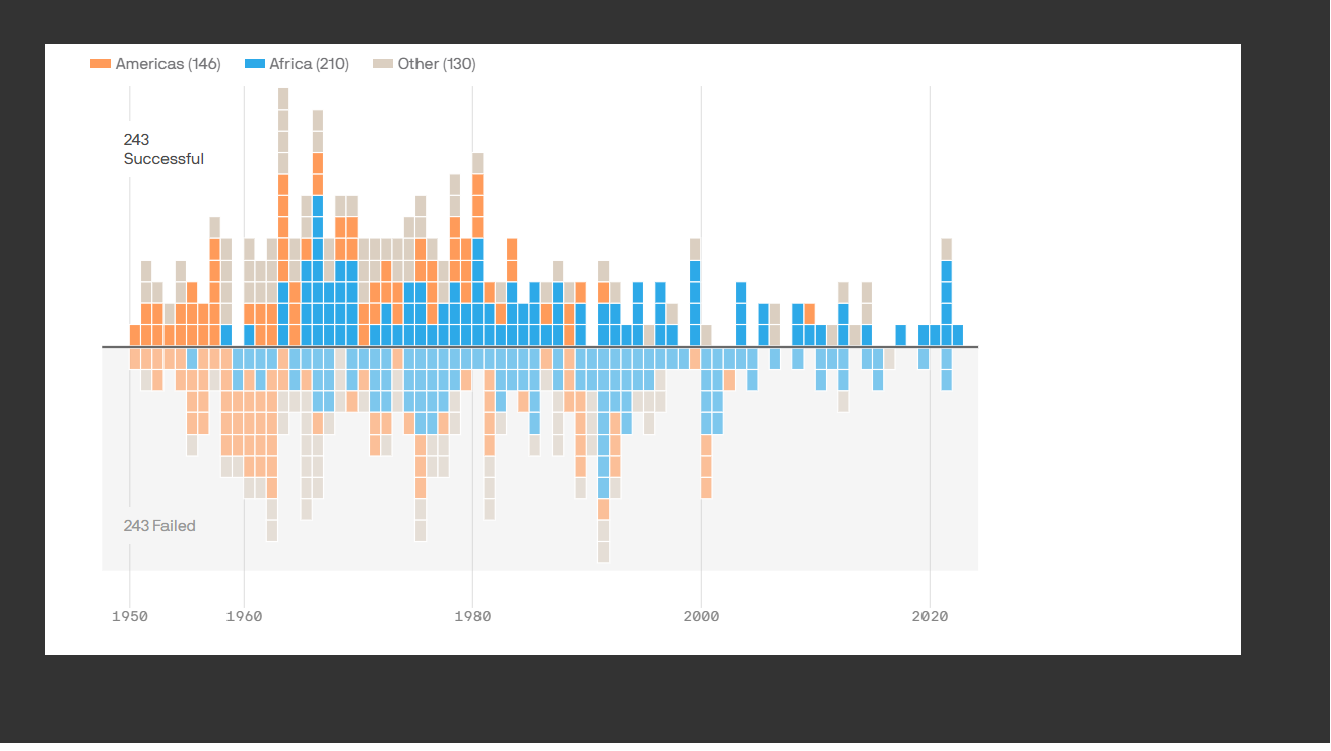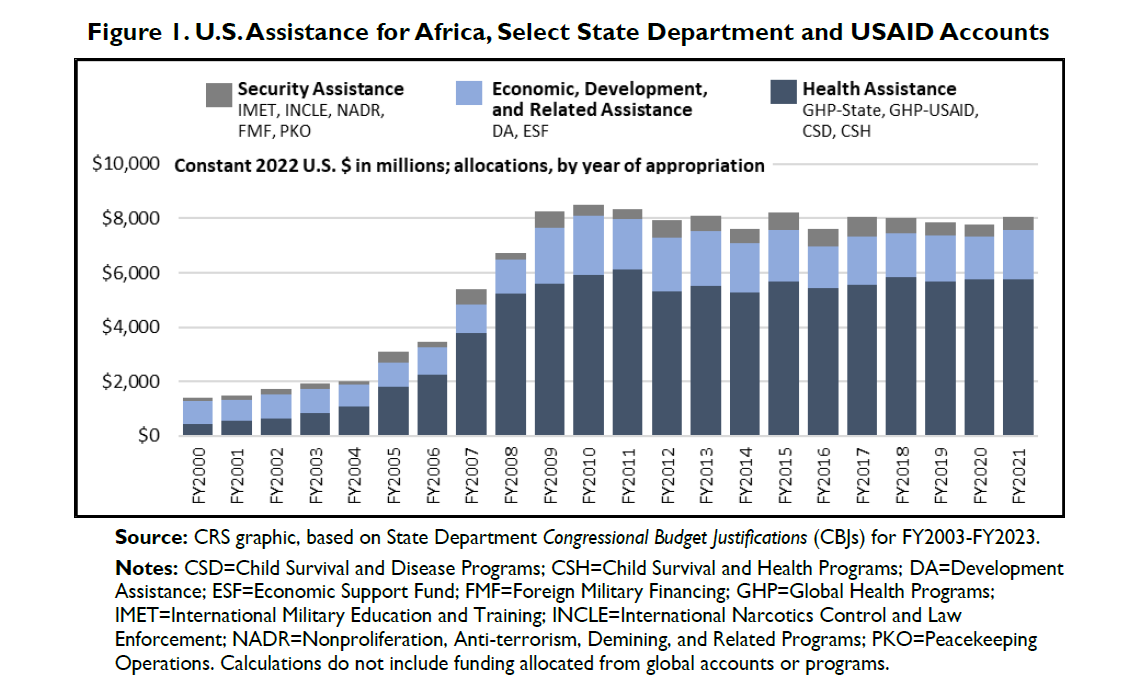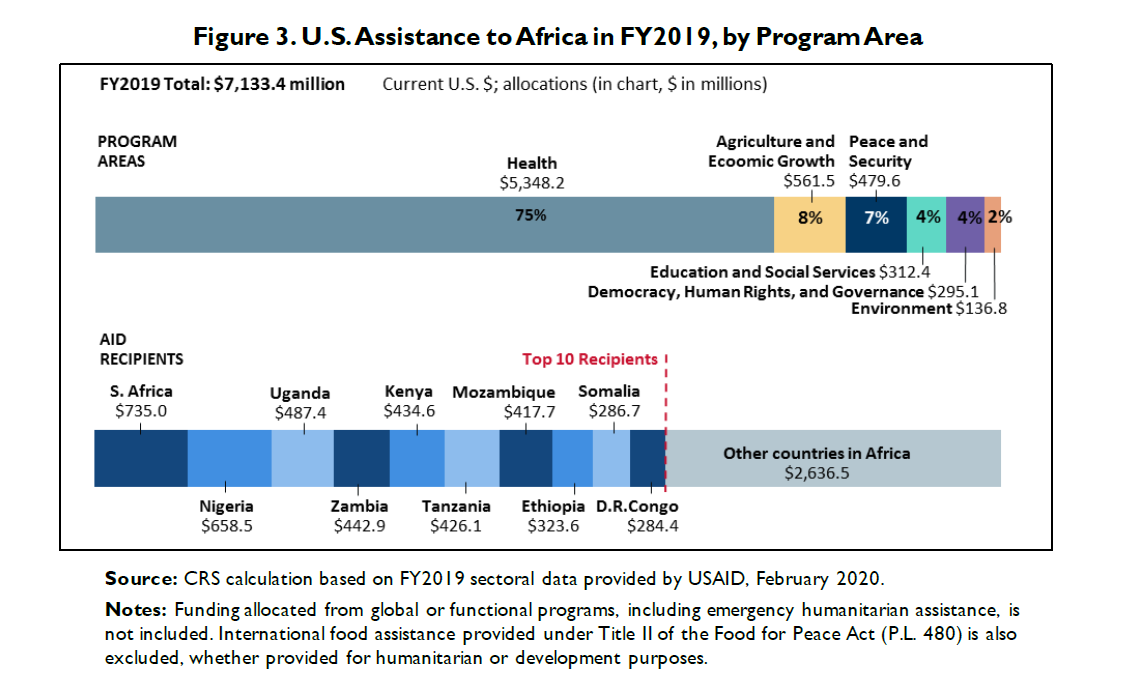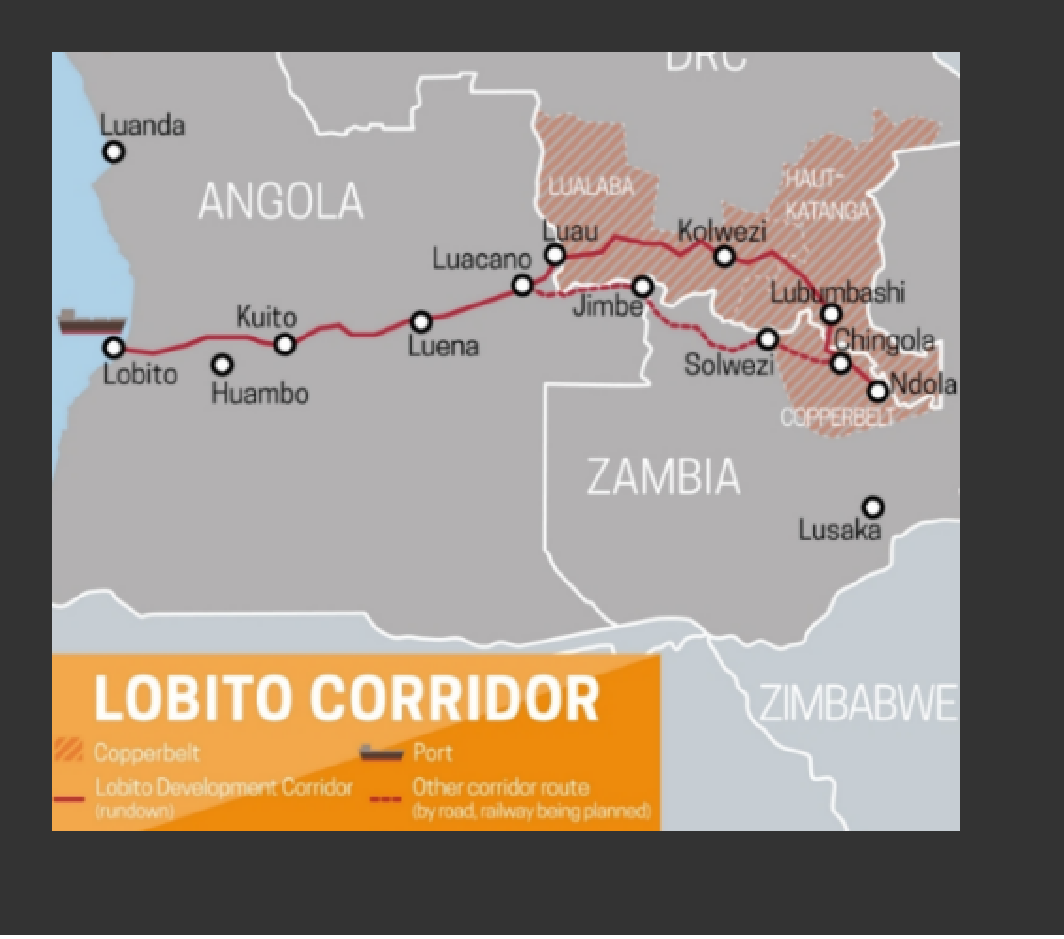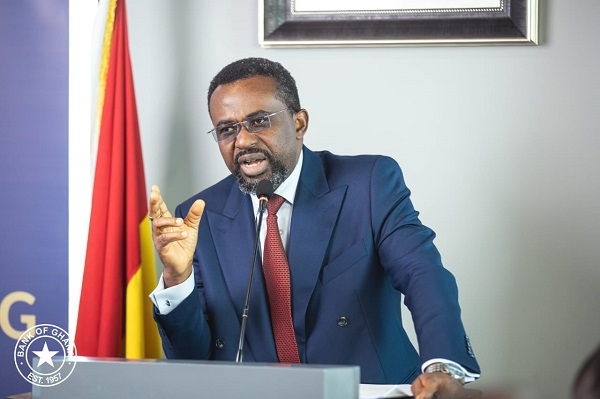Redefining U.S. Foreign Policy in Africa in Response to Rising Coups and Shifting Geopolitical Dynamics
Photo: The UN Security Council as it meets to discuss a military coup d'état in Africa. Courtesy Image United Nations/Eskinder Debebe
The views expressed are those of the authors and do not reflect the official policy or position of the Naval Postgraduate School, the Department of Defense, or the U.S. Government
The recent surge of coups in Africa, particularly in former French colonies, indicates the urgent need for the United States to fundamentally reevaluate its foreign policy towards the continent. The current U.S. strategy, heavily focused on military and humanitarian aid, falls short in addressing the complex challenges of governance, economic instability, and security that contribute to the region's unrest. This situation is further complicated by the growing anti-Western sentiment and the increasing influence of global powers like China and Russia. To maintain its influence and support African self-determination and development, the United States must transition from aid-based approaches to economic development policies that provide African countries greater access to American markets, especially in specific sectors where they can develop expertise. This approach mirrors the U.S. strategy with Japan and Korea in the automobile industry. Potential sectors for specialization include the processing of rare earth minerals, oil refining, agriculture, and textiles. In addition to these economic policies, the United States should help build robust, independent parliamentary and judicial institutions to counterbalance the historically dominant presidential regimes in Africa.
This comprehensive reevaluation should include distancing U.S. policy from France’s colonial legacy, countering the expansive Chinese and Russian geopolitical strategies, and fostering sustainable development and democratic governance. The United States needs to adopt a nuanced policy framework that prioritizes mutual respect, economic cooperation, and transparent governance, aligning American interests with African development goals and establishing resilient partnerships based on shared values and mutual benefits.
The recent surge of coups in Africa, particularly in countries with a French colonial legacy, has exposed significant weaknesses in U.S. foreign policy toward the continent.[1] Events in Senegal, where the president unsuccessfully attempted to cancel an election, and Niger, where a military coup has led to the prolonged detention of the elected president, highlight this issue. [2] Additionally, the killing of a leading opposition politician by security forces in Chad, coupled with shifts toward autocracy in Benin and Tunisia, reveal democratic crises in these former French colonies These developments reflect deeper historical and structural issues, including the lingering legacies of colonialism, neocolonial influences, and ongoing geopolitical rivalries. [3] They call for a thorough reassessment of United States engagement with Africa, particularly after the humiliating American military departure from Niger, a key counterterrorism and security partner in the region. Given the increasing influence of global powers like China and Russia, an urgent need exists for the United States to rethink its strategy.[4] Moving forward, the United States must recalibrate its approach beyond its traditional reliance on military and humanitarian aid, embracing a more comprehensive strategy that addresses the root causes of instability -- namely economic, governance, and security challenges. To effectively counter the rising anti-Western sentiment in Africa and the strategic maneuvers of other global powers, America must also distance its policies from France's shadow.[5] These coups present a unique opportunity for the United States to redefine its relationship with Africa, focusing on sustainable development, democratic governance, and mutual respect, thereby maintaining U.S. leadership as Africa becomes increasingly central to global geopolitics.[6]
Since independence, African nations have experienced more than 220 coup attempts, with 109 being successful, marking Africa as the region with the most coups globally.[7] A significant pattern exists: most coups have occurred in former French colonies. Since 2000, 16 of the 23 successful coups happened in these regions, and from 2020 to 2023, all successful coups occurred in former French colonies (Figures 1 and 2).[8] Mali (two coups since 2020), Burkina Faso (2023), Niger (2023), and Gabon (2023) highlight this trend.[9] Colonial legacies -- arbitrary borders, weak institutions, and resource-based economies -- continue to fuel instability. Moreover, the shift toward autocracy has occurred in many of these countries. Leaders like Paul Biya in Cameroon and Alassane Ouattara in Côte d'Ivoire have manipulated constitutions to stay in power, while nations like Benin, Togo, and Chad have restricted democratic processes, exacerbating governance challenges.[10] Ongoing challenges clearly exist in establishing stable governance in many African countries.
In addition to rampant corruption and poor leadership, former colonial powers have played a significant role in Africa's economic underdevelopment, with some arguing that France's role is particularly egregious. Ken Opalo noted that former British colonies in Africa are generally more developed than former French ones.[13] For example, in Cameroon, the Anglophone region (formerly under British control) has seen higher economic growth than the Francophone region, despite similar ethnic backgrounds, climates, and geography.[14] This reflects the stronger institutions left by British colonial rule, in contrast to France's exploitative practices. French companies such as TotalEnergies and Areva dominate energy sectors in countries such as Nigeria, Cameroon, Chad, and Niger, extracting resources without significant local investment and perpetuating dependency.[15] These companies often extract valuable resources without meaningful local investment, perpetuating a cycle of dependency and underdevelopment.[16] Additionally, the Communauté Financière Africaine (CFA) Franc, which ties 14 African states' currencies to the Euro and places these states under French control, restricts these states' economic sovereignty.[17] These states are required to deposit 50 percent of their foreign exchange reserves in the French Central Bank.[18] France's control over their national funds allows France to exercise undue influence on these countries' leaders, limiting their ability to implement economic policies that serve their nations rather than France. As a result, all these states have experienced coups since independence, highlighting how this system hampers growth and development.
Moreover, France's political and military influence in Africa has profound implications for the continent's autonomy and political development. With military bases in strategic locations like Djibouti, Senegal, and Gabon, and a significant troop presence across the Sahel region, France has maintained a strong foothold, often under the pretext of counter-terrorism efforts until recently when Niger, Mali and Burkina Faso demanded French forces to depart.[19] These military engagements, alongside direct political interventions such as the 2011 Ivorian crisis, have frequently undermined the principle of self-determination and stability in the region.[20] These states model school curriculum on old French systems that focus on memorization rather than critical thinking.[21] Concurrently, many African states grapple with internal governance challenges, characterized by corruption and ineffective policy implementation, which further complicates the developmental landscape.[22] The combination of these external and internal factors, compounded by the growing disillusionment with French influence, points to the multiple barriers to development in Africa, steering some states to seek alternatives in global powers like Russia and China. In Niger, coup leaders have exploited this resentment towards the West and the legitimate aspirations of their populations for democratic change. Meanwhile, other powers like Russia, China, and Iran have spread disinformation, exacerbating the situation for the United States.
Anti-Western sentiment in former French colonies stems from economic and political ties perceived as extensions of colonial control. Many coup leaders attribute their actions to French domination, gaining popular support due to widespread anti-French sentiment. France's control over the CFA franc and its military presence, with more than 30 interventions since 1960, reinforces this perception.[23] Exploitation of resources, such as Niger’s uranium for France’s nuclear energy, further deepens resentment, fueling political instability.[24] The decline of French influence is evident as states increasingly align with China and Russia. Afrobarometer data reveals growing African preference for China’s development model, especially in Francophone Africa.[25] Russia, offering security assistance through entities like the Wagner Group, has also gained influence, contributing to decisions like Niger's expulsion of U.S. forces.[26] This shift poses a challenge for United States policy, which must address historical grievances and offer a viable alternative to China and Russia's influence.
China has expanded its presence in Africa through significant infrastructure investments and financial aid, offering development assistance long neglected by Western powers.[27] China's efforts extend to cultural and ideological influence, with scholarships and training programs that promote its values.[28] While these initiatives provide short-term economic relief, concerns about debt dependency and sovereignty remain. In contrast, Russia's engagement focuses on security, filling the void left by retreating Western powers. Through the Wagner Group, Russia offers military aid, often bolstering authoritarian regimes, and employs disinformation campaigns to reshape African perspectives in favor of Russian interests.[29] These actions challenge the Western-dominated order and necessitate a strategic recalibration by the United States and its allies to maintain influence on the continent.
The United States historically failed to support African independence movements in the 1960s, often labeling independentist leaders like Patrick Lumumba (DRC - Democratic Republic of the Congo) and Agostinho Neto (Angola) as communists. Denied United States backing -- often due to the influence of European colonizers -- these leaders turned to communist allies after failing to secure American support.[30] The United States either sided with colonial powers or tried to remain neutral, leaving a legacy of distrust. South Africans, for example, still remember the United States’ initial support for the apartheid regime before the United States eventually changed its stance.[31] This pattern of missed opportunities complicates the U.S.'s efforts to build trust and forge stronger ties with African states today.
Following these historical missteps, U.S. foreign policy has continued to prioritize humanitarian aid over economic engagement. In Fiscal Year 2021, the United States dedicated 75 percent of its assistance to Africa to non-security initiatives, with a focus on health programs like the President's Emergency Plan for AIDS Relief (PEPFAR) and the President’s Malaria Initiative (PMI, figures 3 & 4).[32] These numbers are even higher when adding the proportion of the United States Agency for International Development's (USAID) Bureau of Humanitarian Affairs budget that go to food aid and emergency response. While these efforts address critical health challenges, this disproportionate allocation undermines opportunities for driving sustainable economic development. Furthermore, the United States often provides aid without sufficient accountability, missing the chance to incentivize reforms essential for long-term growth. In contrast, initiatives like the Africa Growth and Opportunity Act (AGOA) and Prosper Africa account for only four percent of U.S. support, leaving U.S. efforts overshadowed by China's infrastructure investments, which are 2.5 times greater than the combined contributions of all Western countries.[33] This imbalance not only diminishes the visibility of U.S. efforts but also weakens America's long-term influence in Africa.
United States Assistance for Africa, Select State Department and USAID Accounts
Figure 4. U.S Assistance to Africa in FY2019, by Program Area
Compounding these challenges, the United States’ reliance on former colonial powers like France in African affairs has exacerbated anti-Western sentiment, particularly in former French colonies. Public anger over France’s role in perpetuating poverty and instability has also tarnished the U.S.’s image, especially as it continues to support French military operations in the Sahel.[34] The recent coups in Gabon, Niger, and Mali highlight a broader rejection of Western interference.[35] United States alignment with France’s neocolonial practices -- such as military interventions and control of the CFA franc mentioned above -- has alienated many African states, while China's development model increasingly gains favor, especially in francophone regions.[36] This shift strongly signals the need for the United States to recalibrate its strategy and build direct, mutually beneficial relationships with African states, free from colonial legacies.
The United States must reassess its Africa policy, moving away from its reliance on former colonial powers like France and outdated Cold War-era tactics. Until 2022, the United States lacked a coherent strategy, often prioritizing rhetoric over actionable policy, which marginalized Africa within U.S. diplomacy.[37] The alignment with France, particularly in military and policy arenas like United States Africa Command (AFRICOM), where French (rather any of the regionally spoken African languages) remains the required language, has deepened anti-Western sentiment across the continent.[38] United States support for unpopular French interventions in the Sahel and backing of corrupt leaders have damaged American credibility, while China and Russia gain ground by providing direct security assistance, infrastructure projects, and alternative governance models that appeal to African states. [39]
To regain influence and counter the growing presence of China and Russia, the United States must overhaul its Africa policy. This strategy shift should go beyond humanitarian and military aid to address the root causes of instability and anti-Western sentiment, focusing on supporting African aspirations for self-determination, sustainable development, and good governance. By adopting a more holistic approach, the United States can foster stronger, mutually beneficial relationships with African nations while reducing the appeal of rival global powers.
The United States should adopt a long-term, nuanced approach to Africa, focusing on sustainable development by addressing the root causes of political instability and strengthening economic partnerships. This will help create a stable and prosperous Africa aligned with both African and American interests.[40]
First, the rise in coups due to slow economic growth and poverty underscores the urgent need for economic integration and market access. The United States should prioritize bilateral and regional trade agreements with African organizations, including the Economic Community of West African States (ECOWAS), the Southern African Development Community (SADC), East African Community (EAC), and the Economic and Monetary Community of Central Africa (CEMAC) to better integrate African economies into the global market. The United States should condition humanitarian aid on tangible reforms that improve the business and investment climate, driving sustainable economic growth. By promoting tariff reductions, investment incentives, and support for economic reforms -- like post-WWII initiatives in Europe and Asia -- the United States can help African states break free from outdated economic models and foster political stability.[41]
Additionally, the United States should reform its development funding system by removing earmarks and empowering ambassadors and country teams to allocate resources based on local needs and U.S. interests. This would prioritize capacity building, governance reforms, and support for local business growth, particularly the middle class. One way to achieve this is by placing USAID funds under the direction of ambassadors rather than a country director, as the current duality dilutes the unity of effort needed to generate meaningful development impact. A clear accountability system, with flexibility to adapt to changing conditions, is essential for success. Hence, despite decades of U.S. aid, Africa is still stuck in poverty and political instability. The situation in Niger illustrates the need for this recalibrated approach. While U.S. efforts have led to advances such as increased female recruitment in the military, these successes are overshadowed by broader political failures. A comprehensive, independent U.S. policy focused on sustainable development is crucial for long-term success.
The United States should also increase its focus on sector-specific initiatives that promote job creation and economic transformation. Technical assistance in key sectors like agriculture, textiles, and technology can have a swift economic impact. Programs like the Lobito Corridor investment symposium demonstrate the potential for collaboration between American, African, and global business interests, which can bolster economic growth and stability (Figure 5).[42] By promoting knowledge transfer, technology, and best practices -- similar to U.S. programs that supported the rise of Japan and South Korea -- the United States can help Africa move beyond reliance on raw material exports and build innovation ecosystems.[43]
To address governance challenges and counter the trend of coups, U.S. policy should further focus on strengthening democratic institutions. Leveraging programs like the State Partnership Program the United States can support long-term capacity building and institutional reform. Focused assistance in parliamentary and judicial systems can create transparent and accountable institutions, laying the foundation for political stability. The successes of Liberia and Nigeria in institutional rebuilding, along with Senegal’s ability to navigate constitutional crises, show the potential of U.S. support in fostering good governance.[44] Additionally, promoting regional integration, akin to the European Union post-Marshall Plan, can contribute to larger, stable markets and stronger political systems across Africa.[45] Such integration, combined with backing for innovation and entrepreneurship through incubators and accelerators, will foster economic diversification and resilience while diminishing the conditions that lead to coups, ensuring a more inclusive and sustainable development path across the continent.
In conclusion, U.S. policy should shift from traditional aid and military support to a holistic strategy that promotes sustainable development, strengthens democratic institutions, and fosters regional integration. By addressing the deeper causes of instability and supporting Africa’s aspirations for self-determination, the United States can secure its influence on the continent while countering the growing presence of China and Russia.
Figure 5: Map Showing Route of Lobito Corridor [46]
The surge in coups and growing anti-Western sentiment in Africa, particularly in former French colonies, demands a significant shift in U.S. foreign policy.[47] The reliance on French expertise and alignment with its policies has become a liability, and traditional security cooperation, humanitarian aid, and economic assistance have proven inadequate in addressing Africa’s complex governance, economic, and security challenges.[48] With the rising influence of China and Russia, it is imperative for the United States to adopt a more holistic approach that prioritizes economic empowerment, democratic institution building, and genuine partnerships that respect African sovereignty and aspirations.[49]
By reorienting its strategy, the United States can mitigate the risks of diminishing influence while fostering sustainable development and stability. A redefined U.S. foreign policy that emphasizes mutual respect, economic collaboration, and transparent governance can build resilient partnerships and support Africa’s path to self-determination.[50] This approach is not only a strategic necessity but also a moral obligation, offering the United States a unique opportunity to contribute to a more stable and prosperous African continent in a rapidly shifting global landscape.
Major Claude Betene is a U.S. Air Force AFRICOM FAO with deep expertise in Sub-Saharan Africa, developed through military and civilian roles across the continent. He is currently F-16 Programs Manager at the U.S. Embassy in Rabat, Morocco, where he oversees a $5 billion FMS portfolio and U.S.-Moroccan cooperation in C2 systems, Space, and Cyber. He was a distinguished graduate of the U.S. Naval Postgraduate School, he earned a Master of Arts in National Security Affairs and received the Outstanding Air Force Graduate and National Security Affairs Department Air Force Association awards. Fluent in French and Ewondo, he has led security cooperation missions across Africa, South America, and Europe.
Lieutenant Commander Taibatu "Tai" Obasi is a U.S. Navy AFRICOM FAO, bringing a wealth of experience from her decade living in Nigeria and her prior engagements across the African continent. Although new to the FAO role, she has a deep understanding of African affairs. She is currently Chief of the Office of Security Cooperation in Libreville, Gabon. She graduated from the U.S. Naval Postgraduate School with a Master of Arts in National Security Affairs, specializing in Sub-Saharan Africa, and completed French language training at the Defense Language Institute.
Dr. David Dow, Ph.D., is an Assistant Professor in the Department of National Security Affairs at the U.S. Naval Postgraduate School, specializing in Comparative Politics with a focus on Sub-Saharan Africa. His expertise includes post-conflict reconstruction, state-building, policing, and political violence. Dr. Dow holds a Ph.D. in Political Science from the University of California, Berkeley, and a BA from the University of New Mexico. His current research explores how post-conflict governments manage reconstruction to consolidate political power while minimizing insurgent threats.
[1] Megan Duzor, Brian Williamson. VOA News. 2023 [cited 2023 Dec 28]. By The Numbers: Coups in Africa — VOA Special Report. Available from: https://projects.voanews.com/african-coups/
[2] Maclean R. Democracy Teetering in African Countries Once Ruled by France. The New York Times [Internet]. 2024 Mar 22 [cited 2024 Mar 22]; Available from: https://www.nytimes.com/2024/03/22/world/africa/democracy-senegal-africa-france.html
[3] Devermont J. A New U.S. Policy Framework for the African Century. 2020 Aug 7 [cited 2023 Oct 20]; Available from: https://www.csis.org/analysis/new-us-policy-framework-african-century. See also Megan Duzor, Brian Williamson.
[4] CRS. CRS Sub-Saharan Africa Key Issues and U.S. Engagement.pdf. See also Maclean R.
[5] Opalo K. The United States should decouple it’s West Africa policy from France [Internet]. 2023 [cited 2024 Mar 22]. Available from: https://www.africanistperspective.com/p/the-united-states-should-decouple?utm_medium=ios
[6] The White House. U.S.-Strategy-Toward-Sub-Saharan-Africa-FINAL. The White House; 2022.
[7] Megan Duzor, Brian Williamson. VOA News. 2023 [cited 2023 Dec 28]. By The Numbers: Coups in Africa — VOA Special Report. Available from: https://projects.voanews.com/african-coups/
[8] Ibid.
[9] Al Jazeera. Al Jazeera. 2023 [cited 2023 Dec 28]. Mapping Africa’s coups d’etat across the years | Maps News | Al Jazeera. Available from: https://www.aljazeera.com/news/2023/8/30/mapping-africas-coups-detat-across-the-years; See also Peter Mwai. BBC. 2023 [cited 2023 Dec 28]. Gabon coup: The latest in a series of military takeovers on the continent. Available from: https://www.bbc.com/news/world-africa-46783600;
[10] Maclean R. Democracy Teetering in African Countries Once Ruled by France. The New York Times [Internet]. 2024 Mar 22 [cited 2024 Mar 22]; Available from: https://www.nytimes.com/2024/03/22/world/africa/democracy-senegal-africa-france.html; Freedom House [Internet]. [cited 2024 Mar 23]. Cameroon: Freedom in the World 2022 Country Report. Available from: https://freedomhouse.org/country/cameroon/freedom-world/2022. See also Freedom House [Internet]. [cited 2024 Mar 23]. Cameroon: Freedom in the World 2022 Country Report. Available from: https://freedomhouse.org/country/cameroon/freedom-world/2022
[11] Megan Duzor, Brian Williamson. VOA News. 2023 [cited 2023 Dec 28]. By The Numbers: Coups in Africa — VOA Special Report. Available from: https://projects.voanews.com/african-coups/
[12] Lawler D. Axios. 2022 [cited 2023 Dec 28]. Coups are making a comeback. Available from: https://www.axios.com/2022/01/30/coup-attemps-countries-around-world
[13] Smith E. CNBC. 2019 [cited 2023 Dec 30]. IMF welcomes the end of French colonial currency in West African bloc. Available from: https://www.cnbc.com/2019/12/23/imf-welcomes-the-end-of-french-colonial-currency-in-west-african-bloc.html
[14] Maclean R. Democracy Teetering in African Countries Once Ruled by France. The New York Times [Internet]. 2024 Mar 22 [cited 2024 Mar 22]; Available from: https://www.nytimes.com/2024/03/22/world/africa/democracy-senegal-africa-france.html
[15] Nic Cheeseman. Coups in West Africa – Is France to Blame? | Democracy in Africa [Internet]. Democracy in Africa. 2023 [cited 2023 Dec 28]. Available from: https://democracyinafrica.org/coups-in-west-africa-is-france-to-blame/
[16] Smith E. CNBC. 2019 [cited 2023 Dec 30]. IMF welcomes the end of French colonial currency in West African bloc. Available from: https://www.cnbc.com/2019/12/23/imf-welcomes-the-end-of-french-colonial-currency-in-west-african-bloc.html. See also Chris Dite. How France Continues to Dominate Its Former Colonies in Africa [Internet]. [cited 2023 Dec 30]. Available from: https://jacobin.com/2021/03/africa-colonies-france-cfa-franc-currency
[17] Chris Dite. How France Continues to Dominate Its Former Colonies in Africa [Internet]. [cited 2023 Dec 30]. Available from: https://jacobin.com/2021/03/africa-colonies-france-cfa-franc-currency
[18] Smith E. and Chris Dite, Ibid.
[19] French mistakes helped create Africa’s coup belt | Opinions | Al Jazeera [Internet]. [cited 2023 Dec 28]. Available from: https://www.aljazeera.com/opinions/2023/8/17/french-mistakes-helped-create-africas-coup-belt. See also Powell NK. The Conversation. 2020 [cited 2023 Dec 30]. The flawed logic behind French military interventions in Africa. Available from: http://theconversation.com/the-flawed-logic-behind-french-military-interventions-in-africa-132528; and also see Chris Dite.
[20] Yates DA. French Military Interventions in Africa. In: Karbo T, Virk K, editors. The Palgrave Handbook of Peacebuilding in Africa [Internet]. Cham: Springer International Publishing; 2018 [cited 2023 Dec 30]. p. 391–408.
Available from: https://doi.org/10.1007/978-3-319-62202-6_22. See also Presse AAF. French Army Interventions In Africa [Internet]. [cited 2023 Dec 30]. Available from: https://www.barrons.com/news/french-army-interventions-in-africa-01657904706
[21] Opalo K. The United States should decouple it’s West Africa policy from France [Internet]. 2023 [cited 2024 Mar 22]. Available from: https://www.africanistperspective.com/p/the-united-states-should-decouple?utm_medium=ios
[22] Rivero CG. The Conversation. 2023 [cited 2023 Dec 28]. Civilian support for military coups is rising in parts of Africa: why the reasons matter. Available from: http://theconversation.com/civilian-support-for-military-coups-is-rising-in-parts-of-africa-why-the-reasons-matter-185448. See also CRS. CRS Sub-Saharan Africa Key Issues and U.S. Engagement.pdf.
[23] Smith E., and Chris Dite, Ibid.
[24] French mistakes helped create Africa’s coup belt | Opinions | Al Jazeera [Internet]. [cited 2023 Dec 28]. Available from: https://www.aljazeera.com/opinions/2023/8/17/french-mistakes-helped-create-africas-coup-belt. See also Powell NK. The Conversation. 2020 [cited 2023 Dec 30]. The flawed logic behind French military interventions in Africa. Available from: http://theconversation.com/the-flawed-logic-behind-french-military-interventions-in-africa-132528; and see also Why does France have military bases in Africa? 2023 Nov 6 [cited 2023 Dec 30]; Available from: https://www.bbc.com/news/world-africa-67278027.
[25] Josephine Appiah, Nyamekye Sanny, Edem Selormey. Africans welcome China’s influence but maintain democratic aspirations [Internet]. Afrobarometer; 2021 Nov [cited 2024 Mar 23] p. 23. (Afrobarometer Dispatch). Report No.: 489. Available from: https://www.afrobarometer.org/wp-content/uploads/2022/02/ad489-pap3-africans_welcome_chinas_influence_maintain_democratic_aspirations-afrobarometer_dispatch-15nov21.pdf
[26] Matthew Lee, Mednick. PBS NewsHour. 2024 [cited 2024 Apr 2]. Niger’s junta ends cooperation with U.S., putting military operations at risk across Sahel. Available from: https://www.pbs.org/newshour/world/nigers-junta-ends-cooperation-with-u-s-putting-military-operations-at-risk-across-sahel.
[27] U.S.-Strategy-Toward-Sub-Saharan-Africa-FINAL.pdf. See also African Lithium Project Boosts US Drive to Close EV Gap on China. Bloomberg.com [Internet]. 2023 Oct 31 [cited 2024 Jan 6]; Available from: https://www.bloomberg.com/news/articles/2023-10-31/african-lithium-project-boosts-us-drive-to-close-ev-gap-on-china; and see also CRS. CRS Sub-Saharan Africa Key Issues and U.S. Engagement.pdf.
[28] Megan Duzor, Brian Williamson. VOA News. 2023 [cited 2023 Dec 28]. By The Numbers: Coups in Africa — VOA Special Report. Available from: https://projects.voanews.com/african-coups/. See also Lawler D. Axios. 2022 [cited 2023 Dec 28]. Coups are making a comeback. Available from: https://www.axios.com/2022/01/30/coup-attemps-countries-around-world
[29] Maclean R. Democracy Teetering in African Countries Once Ruled by France. The New York Times [Internet]. 2024 Mar 22 [cited 2024 Mar 22]; Available from: https://www.nytimes.com/2024/03/22/world/africa/democracy-senegal-africa-france.html
[30] Opalo K. The United States should decouple it’s West Africa policy from France [Internet]. 2023 [cited 2024 Mar 22]. Available from: https://www.africanistperspective.com/p/the-united-states-should-decouple?utm_medium=ios. See also Opalo KO. The Truth About Africa’s Coups. J Democr [Internet]. 2024 [cited 2024 Sep 22];35(2):93–107. Available from: https://muse.jhu.edu/pub/1/article/922836
[31] Partners in Apartheid: U.S. Policy on South Africa. Afr Today [Internet]. 1964 [cited 2024 Sep 22];11(3):2–17. Available from: https://www.jstor.org/stable/4187823
[32] Tomás F. Husted, Alexis Arieff, Lauren Ploch Blanchard, Nicolas Cook. U.S. Assistance to Sub-Saharan Africa: An Overview [Internet]. Congressional Research Service, United States Congress; 2022 [cited 2023 Oct 5]. Available from: https://congressional-proquest-com.libproxy.nps.edu/congressional/result/congressional/congdocumentview?accountid=12702&groupid=100340&parmId=18A659927B6
[33] United States Trade Representative [Internet]. [cited 2023 Oct 24]. African Growth and Opportunity Act (AGOA). Available from: http://ustr.gov/issue-areas/trade-development/preference-programs/african-growth-and-opportunity-act-agoa. See also Opalo K. On America’s structural inability to effectively compete with China in Africa [Internet]. 2023 [cited 2024 Mar 23]. Available from: https://www.africanistperspective.com/p/on-americas-structural-inability
[34] Janes: Increase in regional anti-French sentiment increase of violence and kidnap to foreign forces and expatriates in CAR [Internet]. [cited 2023 Jan 24]. Available from: https://customer.janes.com/Janes/Display/jiwk31178-jiwk-2014. See also Thousands take to the streets of Bamako in anti-French protest | Reuters [Internet]. [cited 2023 Feb 7]. Available from: https://www.reuters.com/world/africa/thousands-take-streets-bamako-anti-french-protest-2022-02-04/; and see also dw.com [Internet]. [cited 2023 Feb 7]. Why is anti-French sentiment on the rise in West Africa? – DW – 12/12/2019. Available from: https://www.dw.com/en/anti-french-sentiment-on-the-rise-in-west-africa-as-security-situation-deteriorates/a-51648107
[35] Tomás F. Husted, Alexis Arieff, Lauren Ploch Blanchard, Nicolas Cook, Brock R. Williams. Sub-Saharan Africa: Key Issues and U.S. Engagement [Internet]. Washington, D.C: Congressional Research Service, United States Congress; 2021 Feb [cited 2023 Oct 5] p. 37. Report No.: R45248. Available from: https://congressional-proquest-com.libproxy.nps.edu/congressional/result/congressional/congdocumentview?accountid=12702&groupid=100340&parmId=18A659927B6. See also Megan Duzor, Brian Williamson. VOA News. 2023 [cited 2023 Dec 28]. By The Numbers: Coups in Africa — VOA Special Report. Available from: https://projects.voanews.com/african-coups/
[36] Ricardo Barrios, Caitlin Campbell, Nicolas Cook, Michael D. Sutherland. China and Sub-Saharan Africa [Internet]. Washington, D.C: Congressional Research Service, United States Congress; 2024 Jan [cited 2024 Mar 14] p. 39. Report No.: IF 12566. Available from: https://crsreports.congress.gov/product/pdf/IF/IF12566. See also Opalo K. The United States should decouple it’s West Africa policy from France [Internet]. 2023 [cited 2024 Mar 22]. Available from: https://www.africanistperspective.com/p/the-united-states-should-decouple?utm_medium=ios
[37] Devermont J, Steadman LE. Defending the U.S. Military Presence in Africa for Reasons beyond Counterterrorism. 2020 May 19 [cited 2024 Mar 23]; Available from: https://www.csis.org/analysis/defending-us-military-presence-africa-reasons-beyond-counterterrorism. See also Devermont J. A New U.S. Policy Framework for the African Century. 2020 Aug 7 [cited 2023 Oct 20]; Available from: https://www.csis.org/analysis/new-us-policy-framework-african-century
[38] Opalo K. The United States should decouple it’s West Africa policy from France [Internet]. 2023 [cited 2024 Mar 22]. Available from: https://www.africanistperspective.com/p/the-united-states-should-decouple?utm_medium=ios
[39] Devermont 2020 - A New U.S. Policy Framework for the African Century.pdf.
36. Unpacking the New U.S. Strategy Toward Sub-Saharan Africa [Internet]. 2022 [cited 2023 Oct 5]. Available from:
[40] Opalo K. Policymaking for economic transformation in African states: what ought to be done [Internet]. 2023 [cited 2024 Mar 23]. Available from: https://www.africanistperspective.com/p/policymaking-for-economic-transformation
[41] De Long JB, Eichengreen B. The Marshall Plan: History’s Most Successful Structural Adjustment Program [Internet]. National Bureau of Economic Research; 1991 [cited 2024 Apr 2]. (Working Paper Series). Available from: https://www.nber.org/papers/w3899
[42] Stonor A. The Lobito Corridor: Washington’s Answer to Belt and Road in Africa [Internet]. Geopolitical Monitor. 2024 [cited 2024 Jan 6]. Available from: https://www.geopoliticalmonitor.com/the-lobito-corridor-washingtons-answer-to-belt-and-road-in-africa/. See also House TW. The White House. 2023 [cited 2024 Jan 6]. FACT SHEET: The U.S. – Angola Partnership. Available from: https://www.whitehouse.gov/briefing-room/statements-releases/2023/11/30/fact-sheet-the-u-s-angola-partnership/; and see also African Lithium Project Boosts US Drive to Close EV Gap on China. Bloomberg.com [Internet]. 2023 Oct 31 [cited 2024 Jan 6]; Available from: https://www.bloomberg.com/news/articles/2023-10-31/african-lithium-project-boosts-us-drive-to-close-ev-gap-on-china
[43] Ellwood D. The Impact of the Marshall Plan. Hogan MJ, Carew A, Kindleberger CP, editors. History [Internet]. 1989 [cited 2024 Apr 2];74(242):427–36. Available from: https://www.jstor.org.libproxy.nps.edu:2048/stable/24414294. See also Mark E. Manyin. South Korea--U.S. Economic Relations: Cooperation, Friction, and Future Prospects [Internet]. 2004 Jul [cited 2024 Apr 2] p. 12. Report No.: RL30566. Available from: https://apps.dtic.mil/sti/citations/ADA461688
[44] Senegal’s Top Court Rejects President Sall’s Bid to Delay Vote. Bloomberg.com [Internet]. 2024 Feb 15 [cited 2024 Apr 2]; Available from: https://www.bloomberg.com/news/articles/2024-02-15/senegal-constitutional-council-rejects-bid-to-postpone-elections. See also Holman GY Saskia. Carnegie Endowment for International Peace. [cited 2024 Apr 2]. Senegal: From Constitutional Crisis to Democratic Restoration. Available from: https://carnegieendowment.org/2024/04/01/senegal-from-constitutional-crisis-to-democratic-restoration-pub-92085; and see also Reyntjens F. Respecting and circumventing presidential term limits in sub-Saharan Africa: A comparative survey. Afr Aff [Internet]. 2020 Apr 23 [cited 2023 Oct 29];119(475):275–95. Available from: https://doi.org/10.1093/afraf/adz029
[45] De Long JB, Eichengreen B. The Marshall Plan: History’s Most Successful Structural Adjustment Program [Internet]. National Bureau of Economic Research; 1991 [cited 2024 Apr 2]. (Working Paper Series). Available from: https://www.nber.org/papers/w3899
[46] ConstructAfrica [Internet]. [cited 2024 Jan 6]. Lobito Corridor Rail Line Planned from Angola to DRC. Available from: https://www.constructafrica.com/news/lobito-corridor-rail-line-planned-angola-drc
[47] Opalo K. The United States should decouple it’s West Africa policy from France [Internet]. 2023 [cited 2024 Mar 22]. Available from: https://www.africanistperspective.com/p/the-united-states-should-decouple?utm_medium=ios. See also dw.com [Internet]. [cited 2023 Feb 7]. Why is anti-French sentiment on the rise in West Africa? – DW – 12/12/2019. Available from: https://www.dw.com/en/anti-french-sentiment-on-the-rise-in-west-africa-as-security-situation-deteriorates/a-51648107
[48] Tomás F. Husted, Alexis Arieff, Lauren Ploch Blanchard, Nicolas Cook, Brock R. Williams. Sub-Saharan Africa: Key Issues and U.S. Engagement [Internet]. Washington, D.C: Congressional Research Service, United States Congress; 2021 Feb [cited 2023 Oct 5] p. 37. Report No.: R45248. Available from: https://congressional-proquest-com.libproxy.nps.edu/congressional/result/congressional/congdocumentview?accountid=12702&groupid=100340&parmId=18A659927B6. See also Ricardo Barrios, Caitlin Campbell, Nicolas Cook, Michael D. Sutherland. China and Sub-Saharan Africa [Internet]. Washington, D.C: Congressional Research Service, United States Congress; 2024 Jan [cited 2024 Mar 14] p. 39. Report No.: IF 12566. Available from: https://crsreports.congress.gov/product/pdf/IF/IF12566
[49] Devermont J. A New U.S. Policy Framework for the African Century. 2020 Aug 7 [cited 2023 Oct 20]; Available from: https://www.csis.org/analysis/new-us-policy-framework-african-century
[50] Unpacking the New U.S. Strategy Toward Sub-Saharan Africa [Internet]. 2022 [cited 2023 Oct 5]. Available from:

